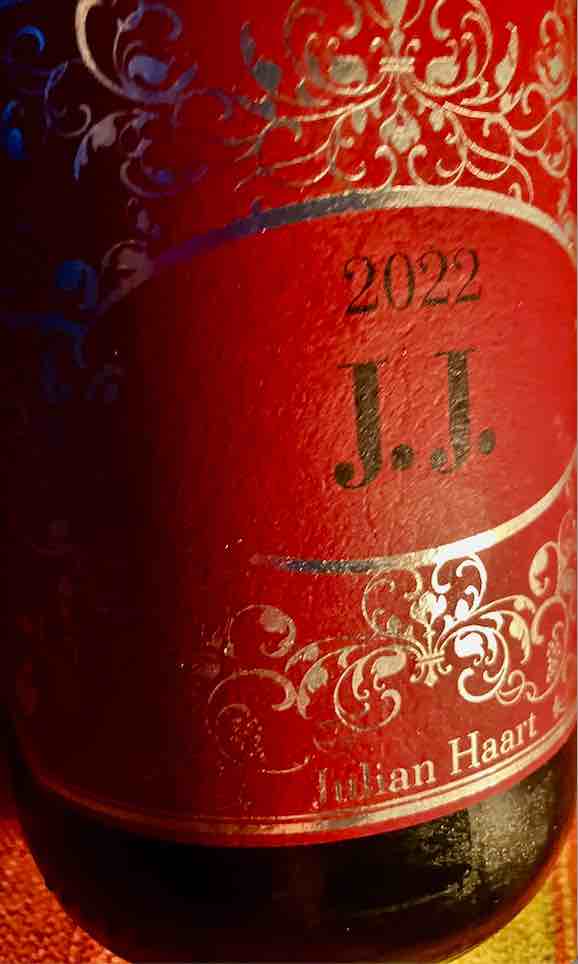
Some of the most sought-after wines are those from Julian Haart. Growing up in an extremely traditional winemaking family, he has been running his own winery

Some of the most sought-after wines are those from Julian Haart. Growing up in an extremely traditional winemaking family, he has been running his own winery
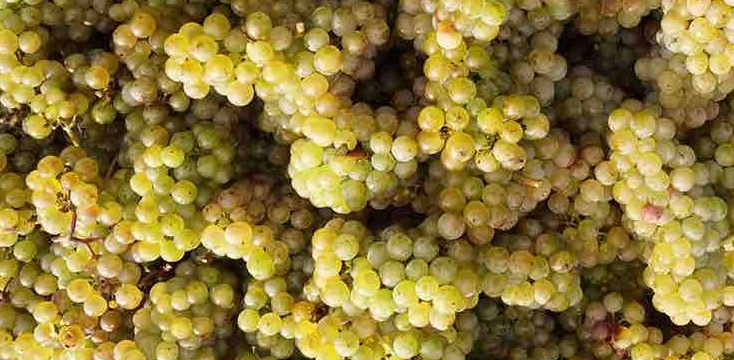 The Hofgut Falkenstein, or a Riesling Spätlese from the winery, has already been the subject of this blog, nevertheless here are the most important points about the winery: Erich Weber and his son Johannes are responsible for the winery. Both studied viticulture in Geisenheim and it seems that they have a very similar view of Riesling vines and whose wines. Their philosophy seems to be characterized on the one hand by renunciation: no fertilisers, fungicides, herbicides and pesticides in the vineyard, no pure culture yeasts,
The Hofgut Falkenstein, or a Riesling Spätlese from the winery, has already been the subject of this blog, nevertheless here are the most important points about the winery: Erich Weber and his son Johannes are responsible for the winery. Both studied viticulture in Geisenheim and it seems that they have a very similar view of Riesling vines and whose wines. Their philosophy seems to be characterized on the one hand by renunciation: no fertilisers, fungicides, herbicides and pesticides in the vineyard, no pure culture yeasts,
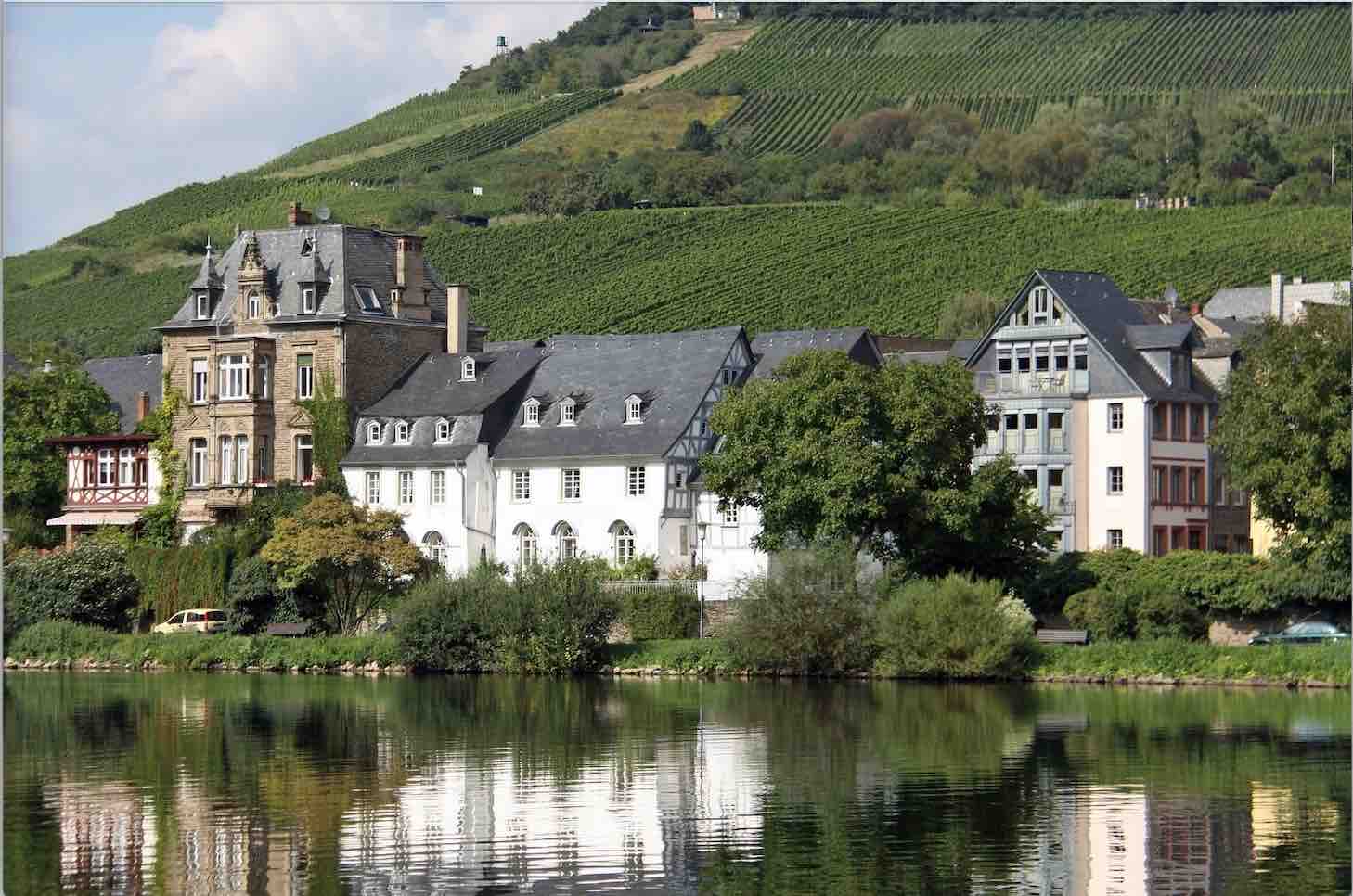
Konstantin Weiser and Alexandra Künstler started with leased 1.8 hectares in the Enkircher Ellergrub. Today they cultivate 4.6 hectares, exclusively Riesling, in Enkirch these are Ellergrub, Zeppwingert and Steffensberg sites, and besides the Trabener Gaispfad, Wolfer Sonnenlay and some smaller steep plots
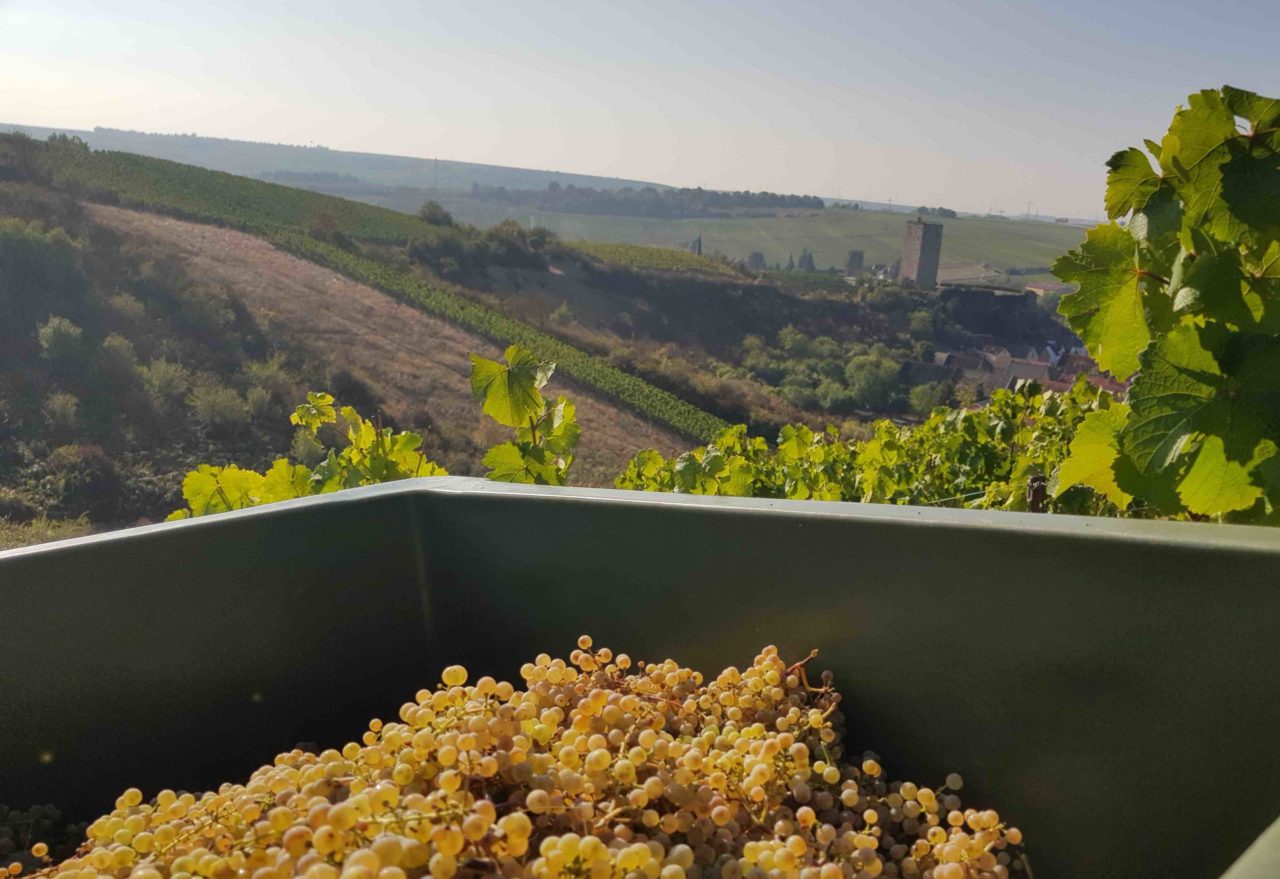
I probably would not have tasted this Riesling Kabinett of Rheinhessen if I had not seen Antonio Galloni‘s YouTube interview with the well-known winemaker Klaus Peter Keller in mid-April this year. Galloni asked him, which other regional Riesling winemakers he woud recommend, and he mentioned Christine Huff. A good recommendation: her Rieslings tasted so far all turned out to be very good.
The Ekkehard Huff Winery, which has been based in Schwabsburg for seven generations, cultivates steep vineyards on the Roter Hang, with stony soils with red clay slate or clay sandstone, such as Schloss Schwabsburg , and the two VDP.Große Lage Orbel and Pettenthal. The nine hectares of the estate also include the VDP.Große Lage Paterberg opposite the red slope, calcareous with loess and clayey, as well as other Schwabsburg vine locations. How Christine Huff cultivates the vineyards and how she is making her wine is to be seen in “Werner, wie geht Wein?” – a recommendable multi-part program of the TV channel SWR.
Around 70% of South Tyrolean wines are produced by cooperatives, which belong to the pioneers of quality development. At this year’s wine trip to South Tyrol, the Winery Bolzano was on our visit program. The new construction of the winery has not only caused a stir architecturally. With around 40 million €, this is the most expensive investment in the wine sector in South Tyrol so far. 220 members of the cooperative are growing vines around Bolzano and manage about 350 hectares of vineyards, which are between 200 and 900 meters altitude. The winery is well known for its Lagrein and St. Magdalener wines, but it also offers many … Read more ...
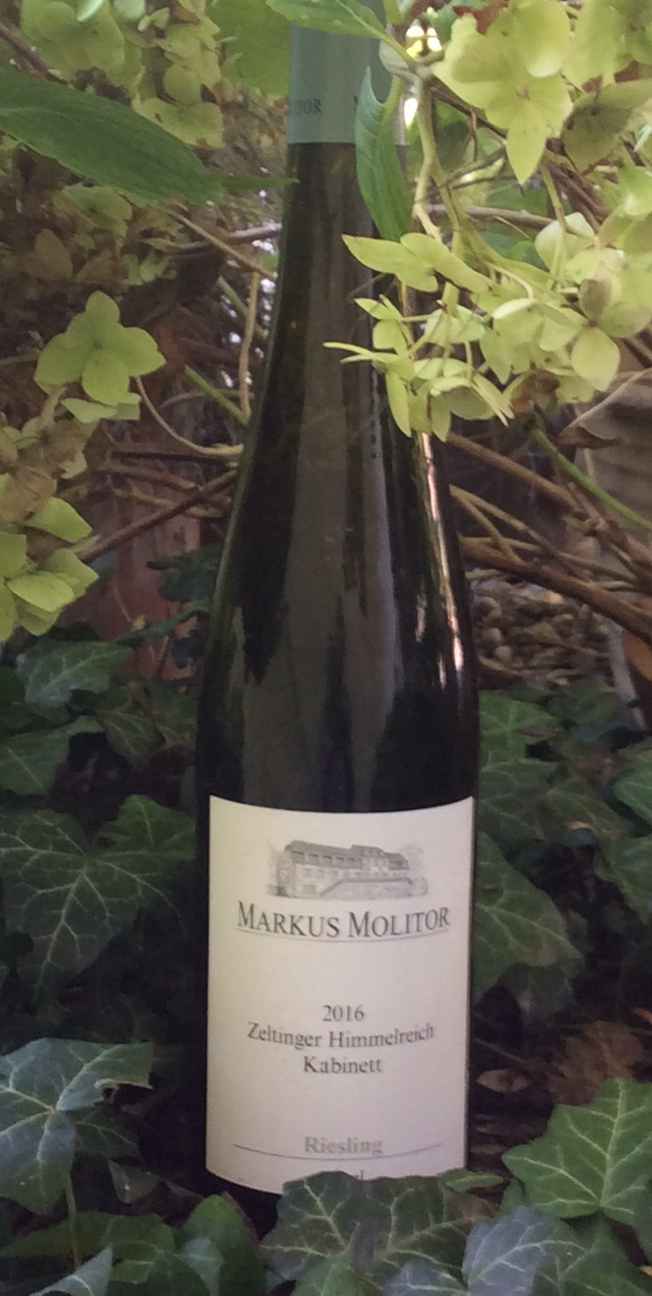 There are four different grades of sweetness according to German and EU wine law: dry, semi-dry, semisweet and sweet, in addition, one also finds the term feinherb. A term probably only used in Germany, which should convey to the consumer that the wine has a fine, slightly herb note, even though or just because it is not dry.
There are four different grades of sweetness according to German and EU wine law: dry, semi-dry, semisweet and sweet, in addition, one also finds the term feinherb. A term probably only used in Germany, which should convey to the consumer that the wine has a fine, slightly herb note, even though or just because it is not dry.
In various wine lexica it can be read that a feinherb wine, such as a semi-dry one, has a residual sugar content of 9 to 18 g / l, whereby the sugar may not be more than 10 g / l above the acidity. This is true for … Read more ...
![]()
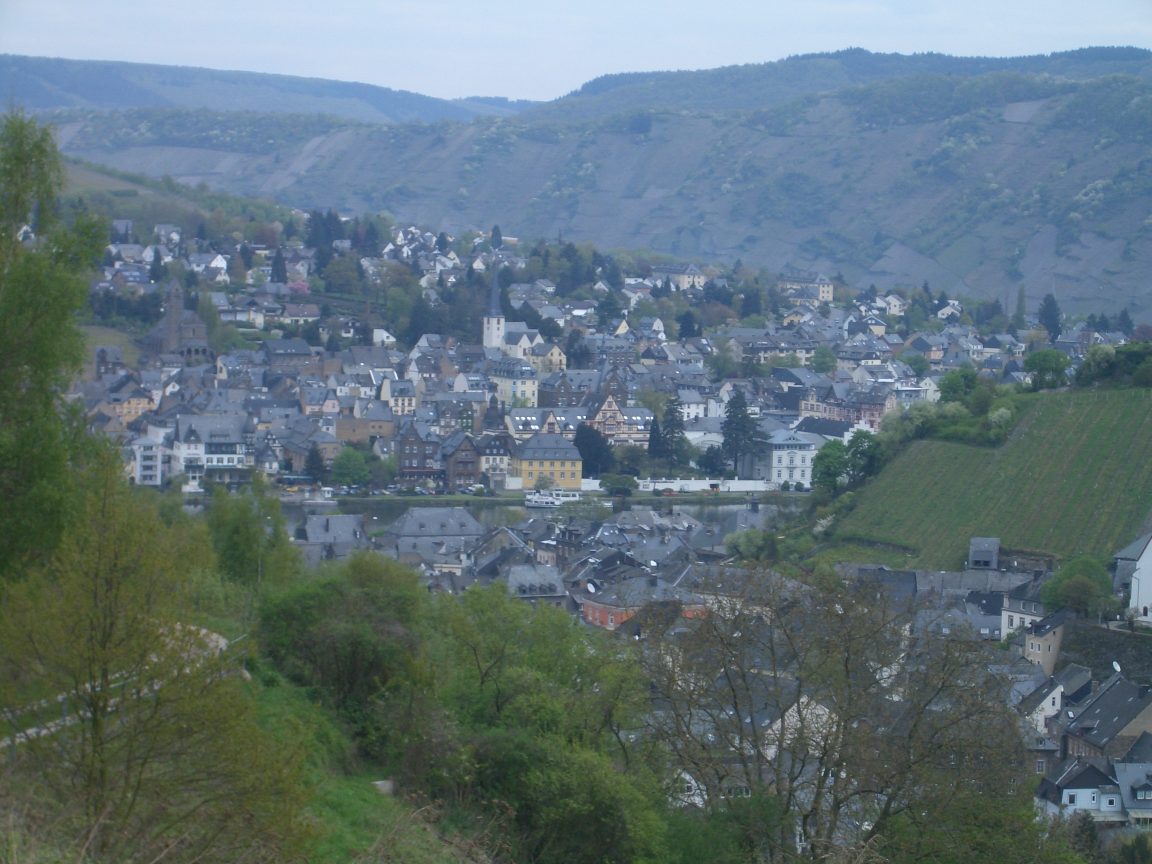
Around half of the vineyards of the Melsheimer winery in Reil are extremly steep slopes, Mr. Melsheimer senior told us in mid-April this year when he showed us around the winery and brought us closer to history, vineyards and vinification of the Melsheimer winery. There are now many steep slopes on the Moselle, but only 5% of them are among the steepest – with a share of 50% probably a challenge in viticulture. Mr. Melsheimer senior renounced various plant protection products, which his son Thorsten consistently continued, first by converting to ecological, then biodynamic viticulture and then in 2013 finally with the Demeter certification.
Around 3/4 of the slightly more than 11 hectares of vineyards, which all are exclusively planted with Riesling, are in the vineyard Mullay-Hofberg, situated directly above the river Moselle. Their southeast orientation together with the barren slate soil ensure long-lasting, excellent ripening conditions.
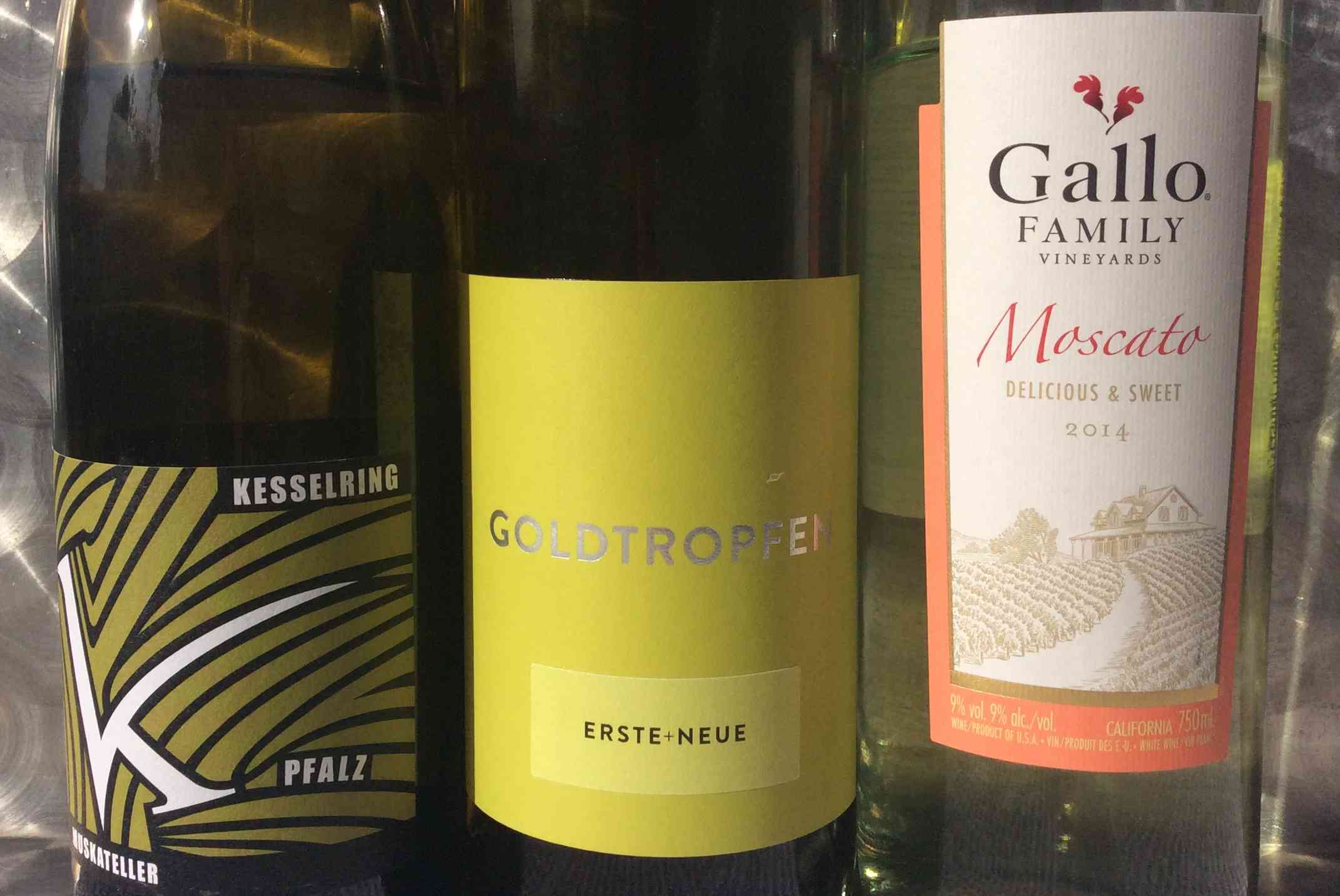
… and all priced below 10 €. We tasted three different muscat wines, two sweet wines: a gold muscatel from the winery Erste + Neue from South Tyrol and a Moscato from Gallo from California, plus a feinherb muscatel from the winery Kesselring from the Palatinate.
All are muscat wines, but of at least two different varieties: Gold Muskateller and Muscat Blanc à Petits Grains, provided that the feinherb wine from Palatinate has been made from yellow muscatel.
For quick readers ahead: None of the wines could be one of our favorites – more in the conclusion. All wines were tasted blindly.
Muskateller feinherb Bio 2014, Winery Kesselring
light pale … Read more ...
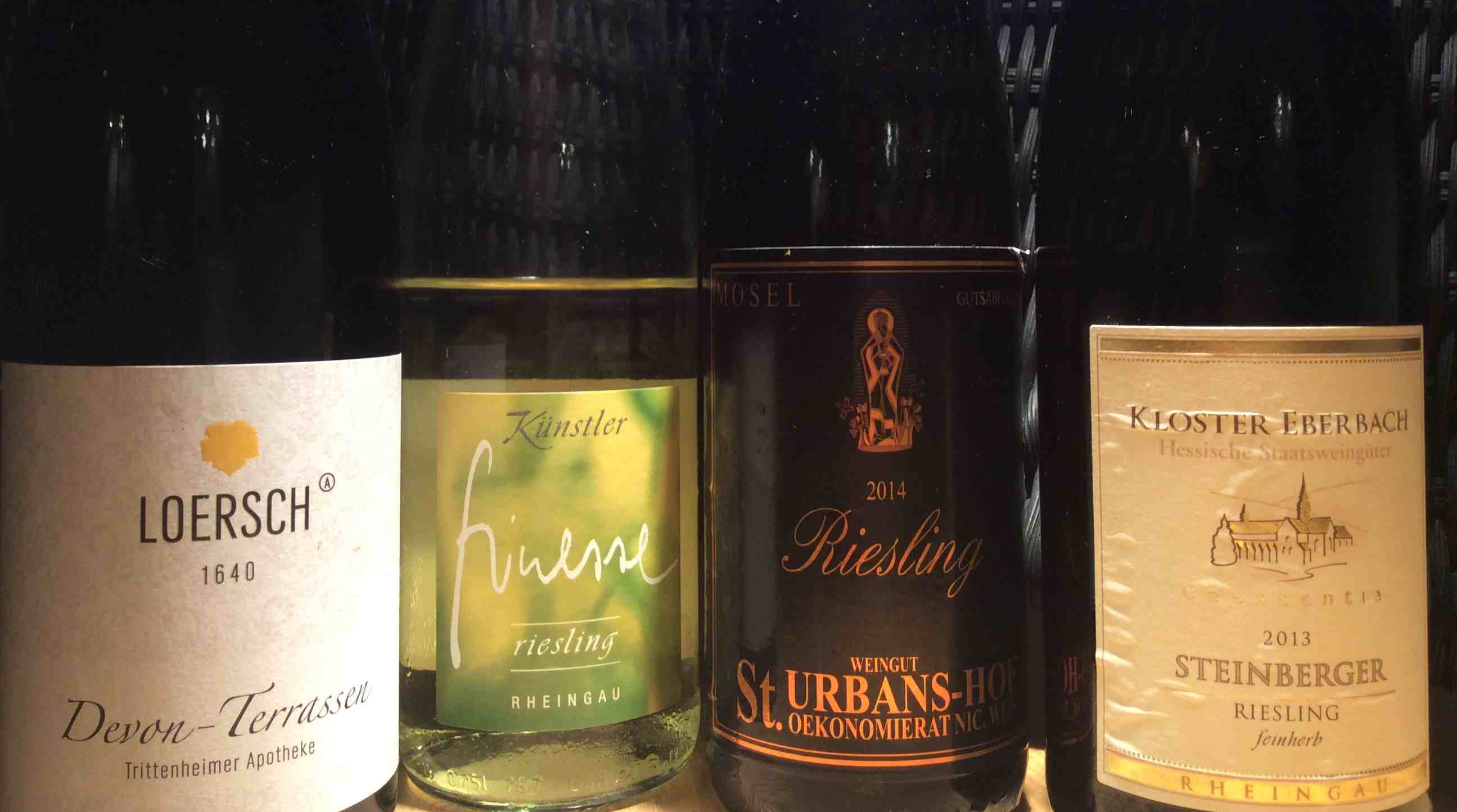 The term feinherb is used to my knowledge exclusively in Germany and often in connection with Riesling. Good dry Rieslings can be found for less than 10 euros, even in the wine shop.
The term feinherb is used to my knowledge exclusively in Germany and often in connection with Riesling. Good dry Rieslings can be found for less than 10 euros, even in the wine shop.
So I ordered three feinherb Rieslings (tasted wines), feinherb at least according to the seller – all three under 10 €.
The Rieslings have been produced by VDP wineries, so not exactly unknown manufacturers. From the Rheingau came the Riesling 2014 Finesse of the winery Kuenstler with 12.5% Vol. Alcohol and the Steinberger Riesling 2013 feinherb of the Staatsweingut Kloster Eberbach, from the Mosel the Riesling 2014 of the St. Urbans-Hof – both with … Read more ...